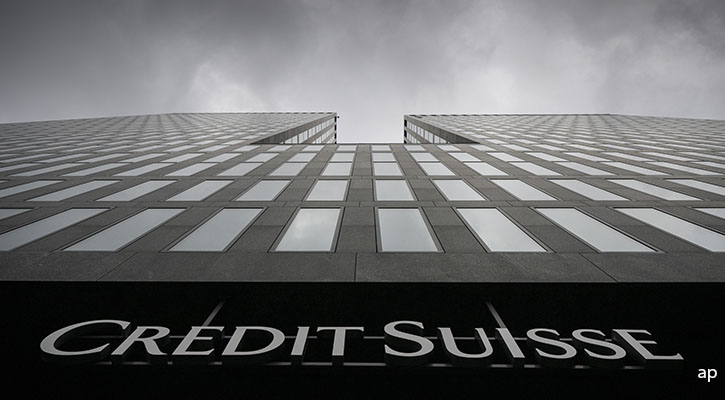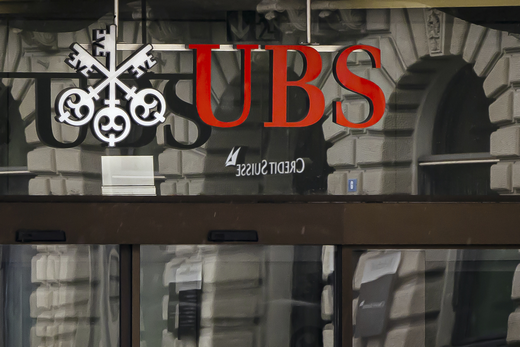
We have increased UBS’ (UBSG) fair value by 22% to CHF 27.50 per share. The increase in our fair value estimate is primarily due to the takeover of Credit Suisse, implying that we place a value of around CHF 19 billion on the acquired Credit Suisse operations.
To contextualise our valuation, in February 2023, before the final collapse of Credit Suisse, the market still valued it at CHF 13 billion. As recently as March 2021, Credit Suisse had a market value of CHF 32 billion. We acknowledge that it will be hard, if not impossible, for UBS to reverse Credit Suisse's recent revenue losses. UBS is, however, much better placed than Credit Suisse to drastically reduce the loss-making, volatile, and capital-hungry investment banking operations and restore the profitability of Credit Suisse's wealth management operations.
We believe that cost savings instead of revenue growth will be the primary driver of UBS' earnings growth for the foreseeable future. We believe the takeover will be highly earnings accretive in the longer term. Furthermore, we estimate that once the integration of Credit Suisse is complete, UBS will book EPS of $3.92 per share in 2027, compared with the $2.25 per share UBS reported on its own in 2022. The integration of Credit Suisse will highly distort earnings for the next three to four years. After completing the integration, we estimate that UBS can generate a 14% midcycle return on tangible equity, which aligns with UBS' recent profitability before the takeover. We expect that the acquired Credit Suisse operations will contribute around 25% of midcycle earnings for UBS.
While the deal is fraught with risk and uncertainty, it creates opportunities. Credit Suisse's wealth and asset management operations were profitable, high-quality operations in the past. UBS acquired talented employees, good client relationships, and a significant asset base for a fire-sale price. Concerns around its solvency saw Credit Suisse's funding costs soar in the past few months of its existence. Lower funding costs will provide almost immediate support to consolidated revenue.
Accounting adjustments and nonrecurring line items will mar UBS' results for the next four years. If we look through this period, we estimate that by 2027 the consolidated wealth management and asset management businesses will be even more dominant than what it was for a standalone UBS, contributing 63% of profits. At the same time, we expect investment banking only to contribute 11%. Our base case is that UBS keeps Credit Suisse's domestic Swiss bank which, combined with UBS' Swiss bank, we expect will contribute the balance of 27%.
Familiar Territory for UBS
After the 2008 global financial crisis, UBS was in a similar position to Credit Suisse before its collapse. UBS' capital allocation was utterly lopsided, with 70% of its capital allocated to volatile, unprofitable investment banking activities. Over the next 15 years, UBS reduced the capital allocated to investment banking to 30%, shutting down investment banking operations that did not support its core wealth management business. UBS halved its asset base and lopped 30% of its cost base while increasing revenue. The consequent capital adequacy and profitability improvement allowed it to buy back 20% of its shares over the past five years. Now UBS will have to do this all over again.
For the combined entity, we forecast modest revenue growth of 1% compounded annually over the next five years. We believe that the revenue of the legacy Credit Suisse operations will decline by 16% cumulatively over the next five years. We believe UBS will aggressively shrink Credit Suisse's investment banking operations. We forecast initial revenue attrition for Credit Suisse's wealth management operations of 16% in 2023, driven by client outflows followed by a return to long-term trend client inflows from 2024 onwards. Excluding the impact of the integration, we see solid revenue growth of 4% annually over the five years, with UBS' wealth management operations continuing to benefit from stable client inflows and investment banking revenue lagging as we expect market volatility to subside.
Restructuring Costs to Come
We expect a compounded annual decline in operating expenses of 2% over the next five years for the consolidated business. UBS has stated that it wants to reduce annual operating expenses by at least $8 billion by 2027. We expect that most, if not all, cost reductions will be on the legacy Credit Suisse cost base. We estimate that the legacy Credit Suisse cost base will be 53% lower by 2027 compared with what Credit Suisse reported as a standalone business for 2022. UBS will have to incur significant restructuring costs to achieve these cost savings. We include cumulative restructuring charges of $10 billion over the next four years, with the bulk of the restructuring charges taken in 2024. We expect that around 70% of the cost savings and related restructuring charges will be to wind down large areas of Credit Suisse's ailing investment banking business.
UBS has already retroactively recognised net markdowns of $13.5 billion on the acquired Credit Suisse business. In addition, it raised a provision of $4 billion for potential litigation charges. The $17 billion in capital raised by the bail-in of Credit Suisse's AT1 bonds was sufficient to offset these two charges. These accounting adjustments are part of the so-called purchase price allocation process that UBS used to calculate the negative goodwill of $35 billion, which it will recognise as a bargain purchase gain in its 2023 results. UBS has not indicated any additional markdowns, but we are modelling $5 billion in further markdowns. If markdowns were to exceed $5 billion, the Swiss authorities would fund a further $9 billion of markdowns. Initial indications were that UBS and the Swiss authorities would share markdowns above $14 billion. We believe that UBS will be hesitant to use these support measures, as we think it could limit UBS' options when it comes to returning excess capital to shareholders.
Dividend to Remain
We believe that UBS will continue with its policy of incrementally increasing dividend payouts, and we estimate that UBS will pay a dividend of $0.61 per share for 2023. UBS has suspended its share buyback program, but we estimate it will have sufficient excess capital to buy back $15 billion of its shares (20% of its current market value) in 2027. Reducing the size of Credit Suisse's capital-hungry investment banking operations will release significant capital that UBS can return to shareholders. Once the initial restructuring costs and markdowns are out of the way, UBS will again be in a good position to generate organic capital to support further shareholder returns.
Our fair value estimate for UBS is subject to Very High uncertainty. UBS has disclosed limited information about the potential financial impact of the takeover of Credit Suisse, which complicates our valuation.
To consider a firm for a narrow moat under our moat methodology, a substantial threat of material value destruction should not exist. The merger with Credit Suisse brings additional risks, and the associated restructuring costs will reduce UBS' profitability below its cost of capital in the near term. We, however, believe that UBS' existing capital strength, liquidity, and experience in executing a similar restructuring of its investment bank in the past are vital mitigating factors. In addition, the Swiss authorities provided UBS with ample downside protection of potentially up to CHF 27 billion (10% of Credit Suisse's risk-weighted assets) for any required markdowns of Credit Suisse's assets. It is also important to note that Credit Suisse did not fail because of toxic assets. Instead, a flawed business model with an overreliance on unprofitable investment banking operations and poor risk management was at the root of Credit Suisse's demise.
We find moats for switching costs and intangible assets in UBS' wealth and asset management operations. Given the increased scale, a combined UBS/Credit Suisse Swiss domestic retail and commercial bank may well be moaty. There is, however, significant public opposition to this in Switzerland, and UBS may well decide to spin off the Credit Suisse domestic bank. Even after the restructuring of Credit Suisse's investment bank, we do not believe the merged investment bank will outearn its cost of equity.
As is the case for commercial banks, we believe that switching costs for wealth managers are primarily implicit and include losing a valued relationship with the incumbent advisor, the time necessary to find and vet a new advisor and firm, the paperwork involved in moving accounts, and the mental energy needed to choose and approve a new investment vehicle. Over the past decade, UBS has consistently enjoyed net asset inflows from its wealth management clients. Net client inflows suggest that switching costs could be present. Credit Suisse's wealth management business also had net inflows before its investment bank's continued risk management failures cast doubts over its going concern status.
Ultra-high-net-worth clients value strong relationships with their bankers, typically built over years, often across generations. UBS is increasingly tilting its client base toward ultra-high-net-worth clients – currently, they make up about 40% of UBS' investable assets in its wealth management operations. Credit Suisse's wealth management business has an even greater tilt toward ultra-high-net-worth clients. We believe that complexity supports moats in wealth management, and that catering to ultra-high-net-worth individuals and family offices constitutes a much moatier business than servicing the mass affluent market.










:quality(80)/cloudfront-us-east-1.images.arcpublishing.com/morningstar/347BSP2KJNBCLKVD7DGXSFLDLU.jpg)

















